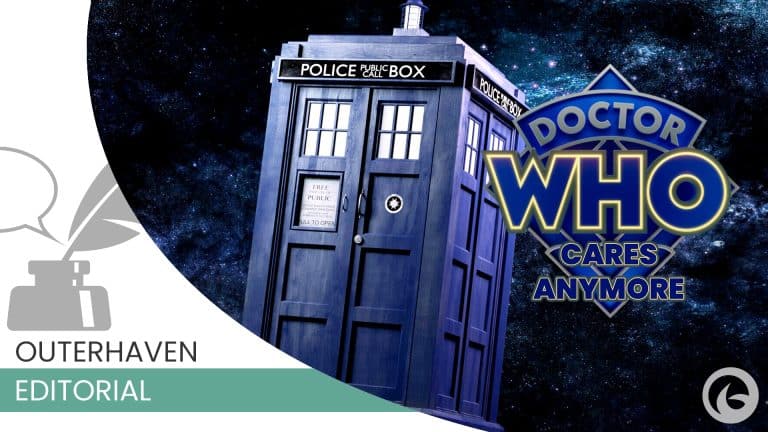It’s been almost 20 years since Doctor Who returned to our TV screens. The original 1963 serialized Sci-Fi show about history, technology, and the relationships involved between a time and space-traveling alien and his companions is one of those cornerstone pop culture franchises that everyone knows. From William Hartnell to the modern combinations of Christopher Eccleston, David Tennant, Matt Smith, Peter Capaldi, Jodie Whittaker, David Tennant again, and now Ncuti Gatwa, are some of the most popular characters on TV for the last 20 years… Kind of.
It’s no secret that Doctor Who has suffered a bit of a cold streak over the last 7-8 years. What was once a TV show that garnered ratings between the average of 7 million viewers per episode and 13 million now can’t seem to break past the 4.06 million viewer barrier (over 7 days) for any episode. From the outside, it looks like the Doctor Who fandom is over, dead in the water, with no regeneration in sight to save it from a second cancellation.
To see how bad the show has become in the eyes of fans, you only need to look at the difference between “2005” Season 13 and “2024” Season 1 reviews of Doctor Who from our very own Todd Black, who went from heaping praise in one season, to not having much fun or enjoyment at all with the next season. (Yes, there are 7 reviews linked in that last sentence) It seems that a lot of long-time Doctor Who fans, myself included, have been having a hard time watching their favorite character and his adventures in the big blue box.
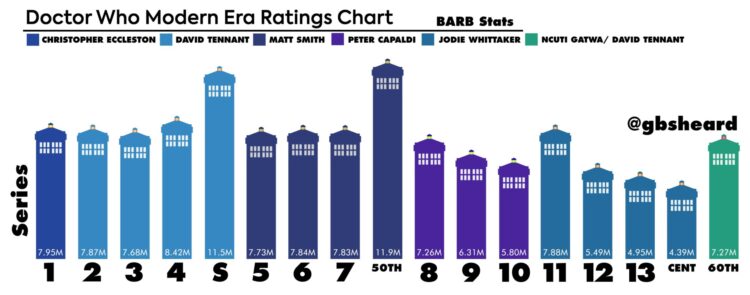
What Happened to Doctor Who?
The main reason for this article, besides the timing with the end of 2024 Season 1, and the rumors that the show might be canceled due to low ratings, is because recently I have, along with my wife, been rewatching Doctor Who (2005 Era) from the beginning of Season 1 after we spent 7 weeks watching the new Doctor Who and not liking it.
As we watched the first season, we both noticed a lot of things that the current Doctor Who season had, but had been done much better, by better actors, by the same writer we have now, and a LOT of what was missing from the more modern seasons that could have helped keep the show working with new and old viewers alike.
So from that, I went back into the archives and started thinking about all the points where Doctor Who “failed the audience” and where things went “wrong” for the most part. I put those things in quotes because there is no definitive reason why the show is lacking these days, but more of opinionated points where I think the show went astray. This is by no means a subjective look at the show and its failings, but an objective look at what might have caused it and possibilities as to why we are in the place we are in from a fan perspective… With some journalistic research to back up findings where possible.
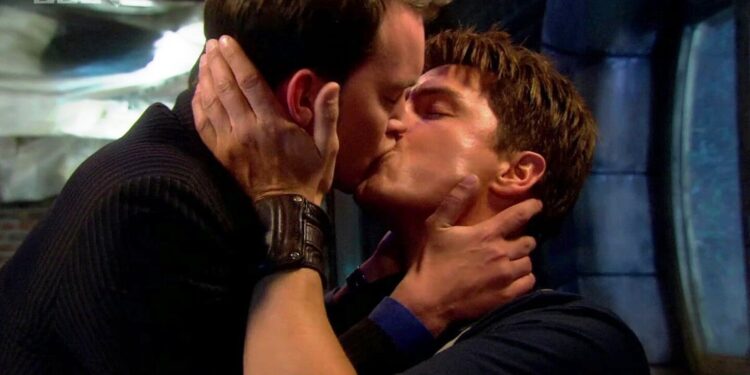
Diversity and Inclusion DID NOT Hurt Doctor Who
Now let’s get the big one out of the way from the outset: Diversity and Inclusion.
Diversity and Inclusion is a BIG topic, and plays a BIG part in Doctor Who from both a success perspective and a failure perspective. Before diving into the negative aspects of Diversity and Inclusion that hurt Doctor Who as a franchise, I want to focus on the positive that those things did for the franchise, especially in the 2005 reboot era.
I’m going to give showrunner and head writer Russell T Davies credit… Before I bury him later in this article… Russell has never been afraid to show his personal life choices as a gay man when it comes to his writing. Before he was writing Doctor Who, he wrote Queer as Folk, a very popular TV series about the life of teenage members of the LGBTQI+ community, something that was still being “discovered” at the turn of the century. Russell had no issues, and still doesn’t, about taking his life experiences and using them in Doctor Who.
Without Russell, we wouldn’t have gotten fan favorite character Captain Jack Harkness, played by the amazingly over-the-top Queen himself: John Barrowman. For those of you unfamiliar with John Barrowman, just watch this clip and you’ll instantly get what I mean. As for Captain Jack, from the outset, he is flirting with both Rose (Billie Piper) and The Doctor (Christopher Eccleston, later with David Tennant) before moving on to star as one of the main characters of the Doctor Who spin-off series Torchwood. If that doesn’t show Russell’s commitment to Inclusion, then you don’t understand what argument you are trying to make.
As for Diversity, Russell is responsible for the first person-of-color companions in the TV series, with Mickey Smith (Noel Clarke) in Season 2 and Martha Jones (Freema Agyeman) in Season 3, both traveling with The Doctor for a matter of time. Russell would continue this trend throughout the seasons to follow, with more people of color accompanying The Doctor in the TARDIS.
Another of Russell’s ideas rewrote The Doctor as a non-gendered being with the introduction of Missy (Michelle Gomez) as one of the regenerations for The Master, one of The Doctor’s main villains. With Missy being introduced, the idea that The Doctor could also regenerate into a female-coded form is possible, and that Time Lords are non-binary beings, being able to change genders at random, something that has become common in modern-day society.
All these ideas, and more, have been a part of Doctor Who since the 2005 reboot, with no one batting an eye at any of these changes since they were handled in a way that made sense to the plot, developed characters over time, and had casting that fit the character… A lot of these things get lost along the way, which is why I wanted to point out that these positive changes to Doctor Who happened long before they were considered a negative point from the fanbase.
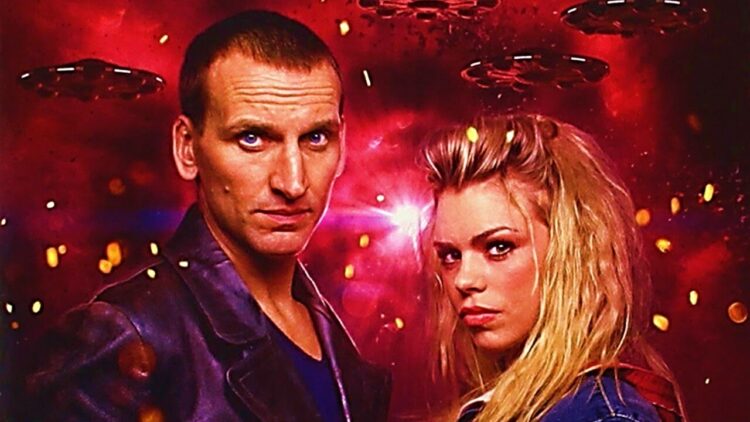
The 2005 Doctor Who Reboot was Amazing But Showed Future Flaws
The stories of the Ninth Doctor, played by Christopher Eccleston, were a delight for viewers worldwide, returning the adventures of the “madman in a blue box” to the forefront of pop culture. While the season was very cheap looking due to the limited “test budget” put forth by the BBC, the writing and use of characters were some of the best that the series has ever produced.
Russell T Davies worked with many different writers through this season of the show, creating a new lore for the Doctor which would be rewritten for a more modern audience. This was a Doctor who was scarred by The Time War and knew that his whole race was destroyed in the final battle, all of which had him battling his trauma while protecting his new home: Earth, and taking a new companion along for a ride through time and space.
This season of Doctor Who featured a mixture of new and old characters, enemies, references, and other parts that came together to create something that not only drew the older fanbase back to the show but also a whole new generation of viewers that would continue for the 20 years to come.
One of the big things that helped drive the newfound return to popularity of the show was the casting of two virtual unknown British actors, Christopher Eccleston and Billie Piper, in the role of The Doctor and his companion Rose Tyler in the lead roles. The chemistry between Eccleston and Piper was electric, both bringing a combination of humor, seriousness, and a slight bit of romance to the roles giving their characters multiple dimensions in their short time together.
Helping fuel this popularity was the stories that were selected, multiple stories that chained together to create a long narrative with a payoff that viewers would not see coming till late in the season. This was accomplised through introduction of characters like Captain Jack Harkness, a human time-traveling criminal with a heart of gold (played by John Barrowman), the Face of Boe, Lady Cassandra O’Brien.Δ17, the Ood, and many more alongside returning villains such as the classic Daleks and Cybermen. The combination of old and new gave this new era of Doctor Who a fresh feel that fans flocked to in droves.
However, behind the scenes, things were not as good as they appeared on screen…
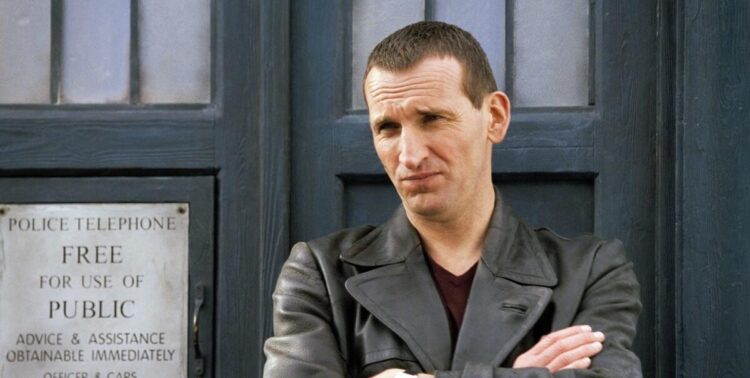
Christopher Eccleston stated in a 2023 interview that he left because of issues with showrunner Russell T Davies and others behind the scenes:
“I left because my relationship with Russell T Davies, Julie Gardner, and Phil Collinson completely broke down during the shooting of the first series, I think it’s fair to say… that in the first series, nobody knows what they’re doing and the politics are raging. The shooting of the first series was a nightmare.”
Eccleston has no issues with the show or the fanbase, stating that he loves being associated with the show:
“I love being associated, I just don’t like being associated with those people and the politics that went on in the first series. The first series was a mess, and it wasn’t to do with me or Billie [Piper], it was to do with the people who were supposed to make it, and it was a mess.”
This rift between Eccleston and Davies would lead the Eccleston’s leaving the show. However, from what accounts have been made public, it seems that Davies is not as trustworthy as he has been made out to be, but more of a tyrant who wants to do things his way and his way only, something that would later lead to the downfall of the series that we are currently seeing.
From those accounts, as mentioned above, Davies has a habit of injecting his politics into Doctor Who simply because he wants to make a show that he wants to watch, with his need for representation being first and foremost in his mind when writing episodes of the hit sci-fi series.
While it did create some interesting ideas and got some very different actors into roles on the show, doing things that would be seen as “controversial” at the time, and other ideas that TV shows would not touch. Most of this did not sit well with Eccleston, someone who grew up as a fan of the show and saw the changes as damaging long before others did. Eccleston agreed with Davies and the BBC that he would leave the role, stating he would not do anything in a statement or otherwise that would damage the hit reboot… Shame Davies didn’t give Eccleston the same courtesy…
“I agreed with Russell that I would go, quietly and respectfully, and I would look after the show publicity-wise, in terms of publicizing it. And then, without saying anything to me, they announced that I was leaving. They didn’t tell me they were going to do that. I was walking down the street, and suddenly I got quite a lot of aggression. And more importantly… they created a quote, and they attributed it to me, which said I was tired.”
Rumors about Eccleston returning to the show have been around for years, thanks to Eccleston doing audiobooks and other non-on-screen appearances as The Doctor for the franchise. However, he has stated that he would not return to the show in an on-screen role without his conditions being met:
“Sack Russell T. Davies, sack [executive producers] Jane Tranter, sack Phil Collinson, sack Julie Gardner, and I’ll come back. So, can you arrange that?”
If only he knew what would happen when Davies was finally removed from the show…
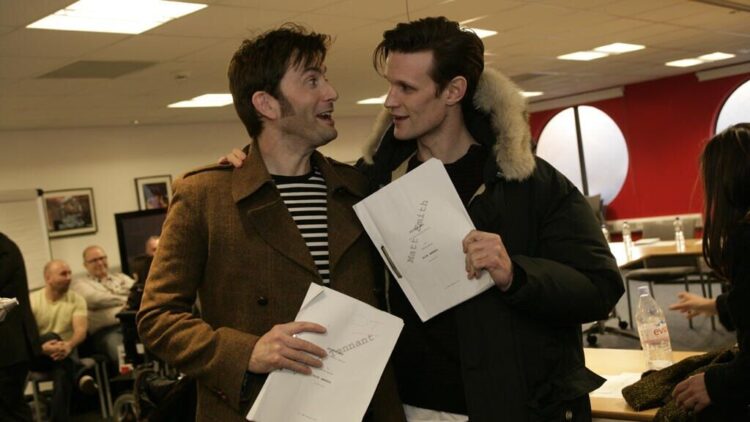
The “Hot Doctor” Problem
We’re about to piss off a lot of Doctor Who fans here… I think that bringing in David Tennant and Matt Smith was a huge mistake for Doctor Who.
Before you get the pitchforks out and gather the online hate mob to cancel me, hear me out. I have no issue with David Tennant or Matt Smith’s time as The Doctor. I started watching Doctor Who at the end of the David Tennant era, leading into Matt Smith’s. I’m a huge fan of Matt Smith’s time as The Doctor, with a lot of his stories getting a regular rewatch over the years… However, the casting of these two did something to the series that hurt it in the years to come.
Expectation is a horrible thing. When you expect something to happen, and it doesn’t, then the anger you feel is amplified because you built up this idea in your head that it HAS to happen in the way you want or it is WRONG. This is why fans battle against each other in online forums and social media, people’s expectations build their desires and when they do not get what they want, then things turn to shit.
What does this have to do with David Tennant and Matt Smith? Well, it has a lot more to do with Tennant than Smith, but he gets to share the blame.
When David Tennant was cast, much like Eccleston, he was a virtual unknown at the time. His big break came on two fronts: As Barty Crouch Jr in Harry Potter and the Goblet of Fire, giving him a “hot bad boy” image in the eyes of younger female fans and older female fans, then he appeared as The Doctor in a way that made him look even cooler than his movie appearance did… And this set expectations.
With the introduction of Tennant as The Doctor, we also saw a production budget upgrade as the BBC used its newfound faith in Davies and friends to produce a great show… And they did. A lot of that could be attributed to Tennant being a “lighter” Doctor than Eccleston was, cracking more jokes and working very well with the one season he had with Billie Piper, with fans wanting to see more of this type of Doctor than the one we had before.
Ratings for the Tennant era averaged 7.71 (million) for Season 2, 7.55 for Season 3, and 8.04 for the final season (Season 4); whereas the Eccleston Season (Season 1) drew an average of 7.95 (excluding Christmas or other Specials). This showed that not only were the stories working for the new audience, but they also accepted Tennant as the new Doctor at the time. Even the Matt Smith era continued this trend, with Season 5 having an average of 7.73 viewers, 7.52 for Season 6, and 7.44 for Smith’s final season (Season 7) despite the fanbase complaining of “Moffat fatigue” due to Steven Moffat being at the front as head writer for a majority of Smith’s run on the show.
How is this a problem for the show? Well, it shows that the popularity of the actors playing The Doctor has a big favor in why people watched the show. Tennant was one of those “hot guys” at the time, thus people flocked to watch whatever he was on at the time. Matt Smith was considered “cute enough” to keep the fans around and watching, even if the writer issues did play on the fans at the time.
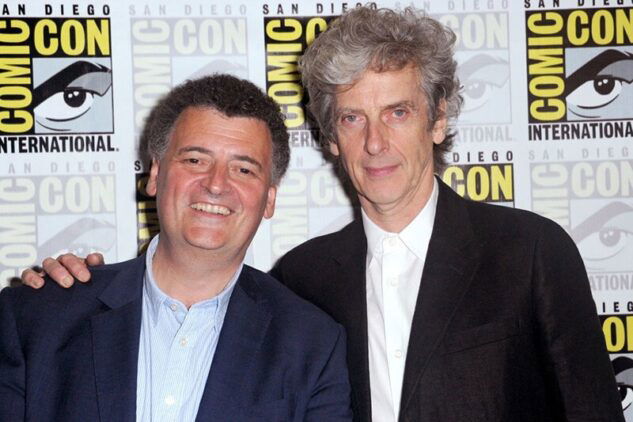
Peter Capaldi, Steven Moffat, and the BBC Interfearance
On August 4, 2013, Peter Capaldi was named as the next actor to take on the role of The Doctor in Doctor Who… And man did the fanbase explode.
Anyone who knew Capaldi’s body of work would know why he would be a great fit for The Doctor, but a lot of the fanbase at the time was younger than Capaldi would be popular. Online, forums and social media blew up with posts about “how dare they cast an old man in the role of The Doctor”, “The Doctor is meant to be hot!”, and other types of topics based on Capaldi’s age and look… Without any claims of ageism or anything being brought up. The new fanbase had made the statement that the traditional older gentleman showing a younger companion around time and space is dead and buried, and how dare Steven Moffat resurrect this style.
When Doctor Who was created, the character people watching were meant to associate with was the companion, the character who changed with the times instead of The Doctor. With this new era of the show, the roles got reversed by the audience, with them wanting to be The Doctor, showing others around instead of being led around. We were entering a time where people see themselves as the main character in everything, instead of another character in the show or movie that they were meant to associate with.
This era of Doctor Who started to see the decline of the show in the ratings, with three factors contributing to why they did.
- Season 8: 7.26 (Million) viewers average
- Season 9: 6.03 (Million) viewers average
- Season 10: 5.56 (Million) viewers average
The reasons this season started to see a drop are pretty simple, and I’ve mentioned them already: The first was the change from “hot” Doctors like Tennant and Smith to a more “traditional” actor with Peter Capaldi. The second was “Moffat fatigue”, where people were getting really sick of head writer Steven Moffat’s writing style and the way the show had become almost a parody of itself. The third was a shifting of the way media was seen by the audience, with a rise in representation ranking higher with the viewers (or at least those who complained about the show online) than seeing good stories or good characters.
Peter Capaldi couldn’t do anything about being cast for the role, the guy did a very underrated job in the role and did what he could with the stories that were told under his watch. There is only so much that an actor can do with the script they were given to work with. For someone who came in with a more “traditional” look to him, Capaldi did a lot to keep the frantic energy that Smith and Tennant brought to the role, even if it was seen as “Hello fellow kids” style acting at the time.
Even Moffat, for all the talk of fatigue with his writing style, did some really good stories during his run with both Smith and Capaldi. One of the best things that Moffat did was introduce The Master, a long-time villain of the franchise, under a new look and name. Missy, played by Michelle Gomez, was The Master (formerly played by John Simm in the Tennant era) in a new female form… and much more deadly. Missy showed that not only did Time Lords have the ability to regenerate into females, but that female characters could carry a season or two. Missy was extremely popular with Doctor Who fans of all eras, and people wonder if she will return to the franchise, something that hasn’t happened since the end of Season 10.
The show even bent to the will of the audience, with Season 10 bringing in a new companion, Bill Potts (played by Pearl Mackie) in an attempt to agree to the new idea that Doctor Who had to be the face of representation, giving diversity and inclusion a go… Even if they did this already with much better results.
The BBC started to get too involved with things behind the scenes, demanding a change from Clara (who worked extremely well with Capaldi) to Bill, and reworking the show to give Bill more of a “higher stage presence” than Capaldi, with her character coming across as condescending to the older Capaldi, who became a vehicle to make it seem like The Doctor was out of touch with the modern world.
Season 10 became the end of the popular eras of the show. In January 2016, Steven Moffat announced he was leaving the show as showrunner at the end of the 10th Season, with Peter Capaldi stating he was doing the same a year later. Little did we know that all hell was about to unleash on Doctor Who…

The Culture War
Here comes the point where people are going to call me a hypocrite… homophobe… racist… sexist… and a million other terms that usually lead to cancelation on social media.
2015 saw a huge change in the social landscape in terms of media and how people saw things. Yep, we’re going to quickly talk about GamerGate and how it has changed the way media has been made and presented…
Despite what the mainstream media, Wikipedia, and even others on this very website would tell you, GamerGate wasn’t a harassment campaign. It was a movement against massive changes to the gaming and pop culture landscape that anyone with two brain cells would see was going to harm the way media would be made going forward.
The rise of “militant feminists” thanks to YouTube and Twitter would see the push to “de-platform” anyone who was white and male for the most part. If you were any of the two (later adding straight/cis-gender to the list) then you were public enemy number one. You were the reason why no one with any skin pigment or labia couldn’t succeed anywhere in life, especially in the place that mattered most to these third-wave feminists: Money.
Another thing that was becoming a requirement was DEI (Diversity, equity, and inclusion) requirements, stating that you NEEDED to include people of color, females, disabled people, LGBTQI+ people, and others into roles in all media. While not a legal requirement, it was a social one. If your show didn’t hit the mythical “DEI checklist” 100%, then your show was a bunch of “ists” and “phobes”, and should not be watched at all.
The outcome of this social push would lead to a lot of shows suddenly making changes to established characters to fit into these new social standards. Doctor Who was one of the shows to “bend the knee” and make changes to the show to fit this new social standard, with the fear of losing the audience and a big social media backlash being the reason to make the changes.
Where Doctor Who had naturally met these DEI standards in the 10 seasons before this social change, people were acting like characters like Mickey, Jack Harkness, Bill Potts, and many other people in the LGBTQI+ and POC communities had never existed. People wanted MORE people of color in the show, they wanted MORE females in the lead role… And BBC agreed with them.
At the end of Season 10, Steven Moffat, one of the longest-running writers on the show, alongside the current Doctor, left the show. A new showrunner was announced alongside the “revolutionary” idea of giving the role of The Doctor to a female for the first time, a female Doctor who would also be bisexual at that, to placate the online masses that the BBC thought were leaving the show.
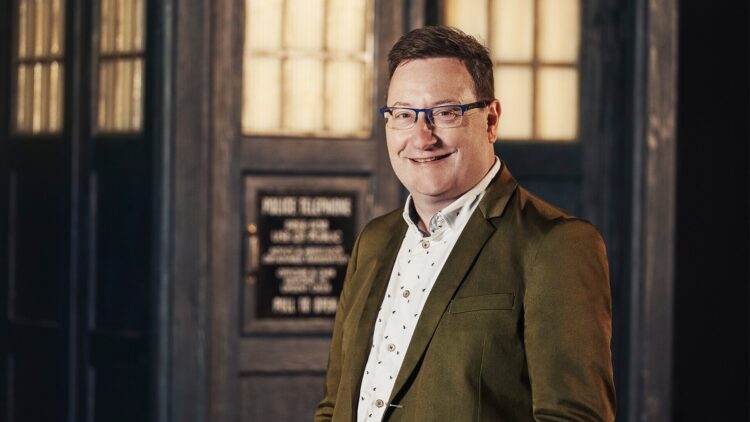
The Chris Chibnall Problem
The name Chris Chibnall isn’t unfamiliar with Doctor Who as he was one of the secondary writers on the revived series since 2005. Under the eye of Russell T Davies, Chibnall co-wrote and wrote some very decent stories for both Doctor Who and its hit spin-off series Torchwood. But when he was given the showrunner role for Doctor Who, things changed dramatically for the show.
Under Chibnall’s watch, Doctor Who’s previous time and space adventures lost a lot of the “space” aspect and focused more on the history part… Mostly trying to rewrite it.
Much like a lot of people were doing at the time, and still do, Chibnall tried to cherry-pick moments in history and bend the already established history to suit a new narrative structure: Where the “white man” was the enemy, and as such, should be made to be as wrong and evil as possible.
Chibnall would state at the time that his mission as the showrunner of Doctor Who was not to tell stories but to write the show his way, throwing out as much of the established lore of the show as possible to create a whole new vision of The Doctor, a vision that aligned with the mythical “modern audience” and aligned with BBC’s new mandate of DEI requirements in the show. To say that the fanbase, who was already getting annoyed with the changes to the show, reacted in the way that many “negative commentators” online would predict: By turning off the show.
The ratings for the three seasons that Chibnall was showrunner came in at the lowest of all time after a start which almost looked like Chibnall and Whittaker could bring the audience back to what it was under Davies and Tennant:
- Season 11: 7.95 (million) viewers on average
- Season 12: 5.40 (million) viewers on average
- Season 13: 4.76 (million) viewers on average (includes the 3 specials)
With the end of the first of Chibnall’s seasons, BBC started to look at the writing that Chibnall was producing, noticing that it lacked one big thing: Doctor Who. So starting with season 12, Chibnall was told he needed to start including older references to Doctor Who, mostly the villains, in an attempt to draw some of the lost audience back to the show, because the mythical “modern audience” wasn’t the ones watching this season, it was the long time established fans who remained to see how far the show could fall.
Of course, this sudden demand from the BBC didn’t sit well with Chibnall, who had already begun to establish HIS Doctor Who lore that he created and wanted to continue to create. Begrudgingly, Chibnall did as he was told by those who held the purse strings and began to add in some of the older villains from the franchise, with “Ascension of the Cybermen” being the end of Season 12… With one more episode to go… One that I’ll talk about very soon.
Due to declining ratings and Chibnall being at odds with BBC, along with the 2020 pandemic cutting the production of TV shows in general at the time, Chibnall’s final season was cut in half, making him have to cut stories that he wanted to tell and follow up on. It was safe to say that by this point, Chibnall’s run as showrunner of Doctor Who was coming to a very bad ending.
On 29 July 2021, the BBC announced that Chibnall would be stepping down from his role as the showrunner of Doctor Who, and Whittaker will be leaving her role as the Thirteenth Doctor. On 24 September 2021, the BBC announced that Chibnall would be succeeded by Davies, who would be returning as the showrunner of Doctor Who.
Chibnall’s time as showrunner on Doctor Who was not the best, but like many people in creative control of a show these days, Chibnall was delusional and thought that he was not in the wrong with what he did at the time, stating the following upon his exit:
“Jodie and I made a “three series and out” pact with each other at the start of this once-in-a-lifetime blast. So now our shift is done, and we’re handing back the TARDIS keys. Jodie’s magnificent, iconic Doctor has exceeded all our high expectations. She’s been the gold standard leading actor, shouldering the responsibility of being the first female Doctor with style, strength, warmth, generosity and humour. She captured the public imagination and continues to inspire adoration around the world, as well as from everyone on the production. I can’t imagine working with a more inspiring Doctor – so I’m not going to! For me, leading this exceptional team has been unrivalled creative fun, and one of the great joys of my career. I’m so proud of the people we’ve worked with and the stories we’ve told. To finish our time on the show with an additional Special, after the pandemic changed and challenged our production plans, is a lovely bonus. It’s great that the climax of the Thirteenth Doctor’s story will be at the heart(s) of the BBC’s centenary celebrations. I wish our successors – whoever the BBC and BBC Studios choose – as much fun as we’ve had. They’re in for a treat!”
Later, Chibnall would make a statement about his time on the show, expecting that what he wrote would be reversed or changed because people didn’t like what he did, but he was still proud of it:
“I think you have to be very okay with — you do your work on the show during your time and the moment you step away, the moment you stop, then nothing is in your hands and other people will come in, will contradict it, will change it, will alter it, and that is more than okay.
“It would be very arrogant of me to sit here and go, ‘What I really hope is they’re going to expand the story into this and that and the other’, given that I have taken the works of others and turned it inside out and questioned it and re-moulded some of the answers.”
Unfortunately, not only would Chibnall’s legacy on Doctor Who endure, but what would come next would be much worse than what he wrote…
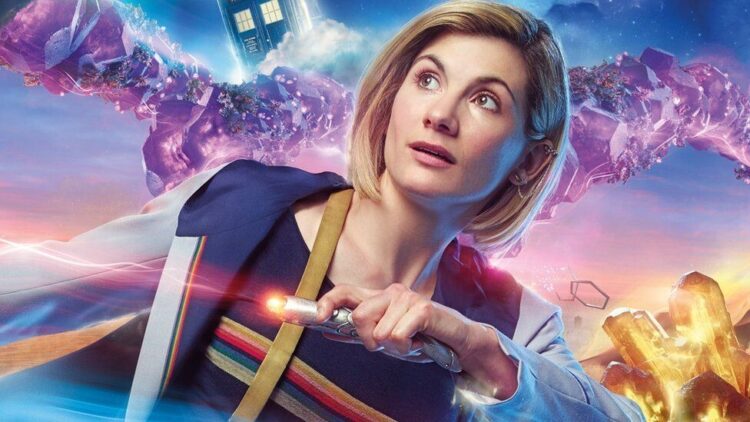
Introducing Jodie Whittaker: First Female Doctor Who
One thing you might have noticed that I didn’t mention when beginning to talk about the downfall of Doctor Who under showrunner Chris Chibnall was The Doctor at the time: Jodie Whittaker. There is one thing I will NEVER do and that is blame Jodie for the downfall of Doctor Who at that time. Much like Peter Capaldi, Jodie was placed in a situation where she did the best with the scripts and situation of the world at the time. An actor should not be blamed for the failings of the writer.
When Jodie Whittaker was cast in the role of The Doctor, I had my doubts about her at the time. But as I said before, it wasn’t so much Jodie, but Chibnall and what he was doing to the show.
At one point I called Jodie “Smith-lite”, and again, that has nothing to do with her, but the writing. She was told to be overly energetic, to reject, dismiss, and downplay the opinions and words of her male companions while uplifting anything that her female companions said. This was a soldier doing what her commander told her to do and nothing more.
For an attempt at the first female playing the role of The Doctor, Jodie did just as well as David Tennant and the first season reflected this in the ratings, with that season being the second best overall since the 2005 relaunch of the show. It’s just unfortunate that from there the writing got worse and people started leaving the show in droves, with Jodie’s final season being the lowest average overall.
The one other thing we need to think about when it comes to Jodie is that she is the Doctor who had the lowest amount of episodes (so far) due to the 2020 pandemic cutting the production of the show in half. Had she been given the extra time and episodes that she would have got, maybe things would have been different with her time on the show.
Whittaker made this statement upon her exit from the show:
“In 2017 I opened my glorious gift box of size 13 shoes. I could not have guessed the brilliant adventures, worlds and wonders I was to see in them. My heart is so full of love for this show, for the team who make it, for the fans who watch it and for what it has brought to my life. And I cannot thank Chris enough for entrusting me with his incredible stories. We knew that we wanted to ride this wave side by side, and pass on the baton together. So here we are, weeks away from wrapping on the best job I have ever had. I don’t think I’ll ever be able to express what this role has given me. I will carry the Doctor and the lessons I’ve learnt forever. I know change can be scary and none of us know what’s out there. That’s why we keep looking. Travel Hopefully. The Universe will surprise you. Constantly.”
Unlike what is to come, Jodie rarely went online to make comments about the show while it was under production, spending her downtime doing appearances at conventions and other places to spend time with the fans who enjoyed her time on the show. Even today, Jodie is a delight to the fans who show her kindness, and quite easily turns the other cheek to those who spurn her. A really classy example of how to deal with a fanbase as divided as Doctor Who had become.
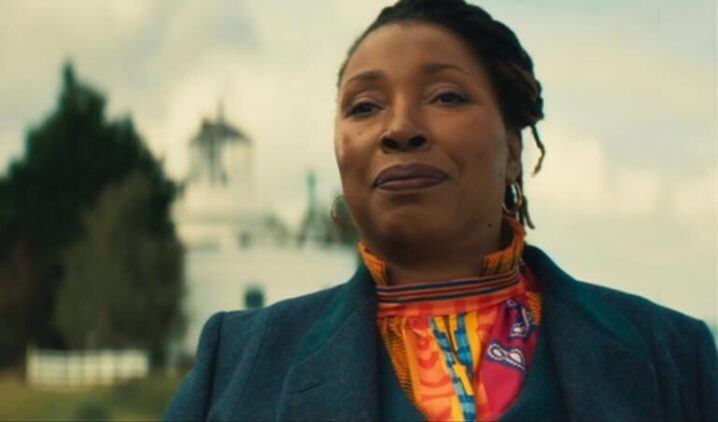
Rewriting History and THE TIMELESS F*CKING CHILD
Remember when I said there was one more episode from Season 12 that I was going to talk about later? Well, this is it.
Many people who suffered through Chibnall’s time as showrunner on Doctor Who would remember the final episode of the season, the one episode that would forever change the origins of The Doctor, regeneration, and the lineage of the character… I’m talking about the episode called “The Timeless Children”.
This episode of Doctor Who rewrites the origins of The Doctor, changing their first appearance, played by William Hartnell, into something along the lines of an unknown number of appearances that The Doctor has had over the decades. Instead of The Doctor being one of the Gallifrains on the planet Gallifrey, also known as Time Lords, she is a member of an unknown race that can regenerate. As a child, The Doctor was found by a Shobogan (The “true name of the race of the Time Lords”) and experimented on till the secret of regeneration could be transplanted into the Shobogan race, thus creating the Time Lords.
Not only did this mean that The Doctor is not from Gallifrey, but she is not even a true Time Lord, a side effect of this is that she does not have any limit of regenerations like Time Lords have… Something that answers why The Doctor could regenerate beyond the pre-established twelve times that the series had in place previous to the 2005 reboot. But the change to the rest of the established lore didn’t go over well.
One of the reasons things did not go over well with the timeless child revelation is that a new character, called “The Fugitive Doctor” (played by Jo Martin) who was introduced in the same season, becomes one of the first regenerations of The Doctor, making William Hartnell’s legacy meaningless in the revelation of this new information. Whether this is true is a matter of debate within the fanbase, with people thinking that Hartnell will forever be the original Doctor, while others welcome this new Doctor addition as a great moment for diversity in Doctor Who.
To say that people got angry about this was an understatement, and for many, the last straw in a season of brow-beating from a writer who did not give a shit about the legacy of the franchise, wanting to rewrite everything in his head-canon. This could be seen as the turning point for Doctor Who from an amazing franchise that got the regeneration reserved for Phoenix’s in fantasy stories to a franchise that would be made into the headline for the downfall of modern media.
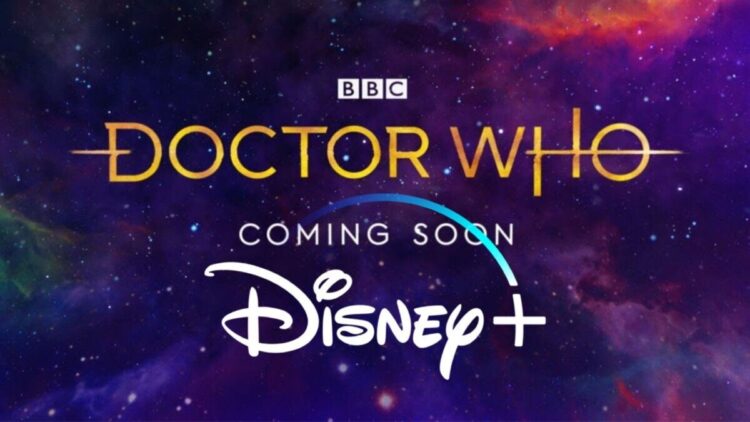
Enter The Mouse: Disney Acquires Doctor Who as BCC Pulls Funding
The BBC, the TV company behind Doctor Who, has fallen on hard times. For the longest time, the publicly funded broadcast and production company would be funded by a “TV License” that was required by those living in the UK to pay to watch TV in their homes. This License would in turn fund shows that the local BBC would produce. With the invention and adaptation of streaming services, the amount of people paying for a TV License has decreased, thus the budget that the BBC can afford has reduced.
Enter Disney…
In 2022, Disney paid the BBC an undisclosed amount for the rights to Doctor Who moving forward, something that has not been seen before. Instead of the usual rights purchase like Star Wars or Marvel Comics, this agreement between the two companies allows for the BBC to retain all rights to Doctor Who as a brand, with Disney stepping in as the international distributor of the series, starting with whatever is to come from the end of Season 13. A part of this deal would see Disney take international rights for the show, and also provide funding for the show starting with the 60th Anniversary special and beyond, something that tripled the budget for the show after the BBC began tightening their belts during the Chibnall/Whittaker era.
With this increase in budget, the BBC decided to bring back the man who saved the show in 2005: Russell T Davies. Along with Davies as showrunner again came a lot of the same writers he worked with in the original revival, including Steven Moffat. What’s more, Davies announced that the plan for the 60th Anniversary of Doctor Who was going to bring back one of the most popular Doctors of all time, David Tennant, into the role of The Doctor for 3 specials that would celebrate the history of Doctor Who before introducing the next Doctor who will take the role into the Disney era: Ncuti Gatwa.
People rejoiced with this decision. As much as people couldn’t admit it at the time, Davies was the man who should have been writing Doctor Who from the beginning to now; there was the bonus of him admitting his outlook as a member of the LGBTQI+ community shaping how he writes the show. Also, with Ncuti Gatwa coming out as Queer in 2023 after his time on the smash hit show Sex Education, the modern socialist fanbase had both an LGBTQI+ showrunner and main character in the show at the same time, a win-win for those championing Diversity and Inclusion.
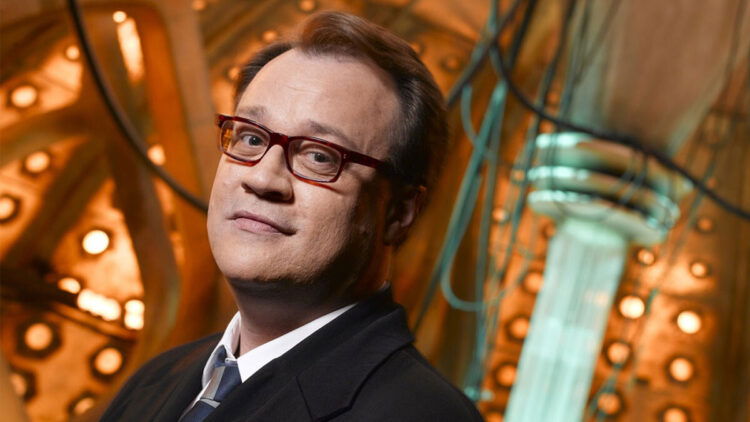
The Return of Russell T Davies: Who forgets how to write Doctor Who
When I started writing this little retrospective on Doctor Who, it was when the end of the Chibnall/Whittaker era happened and the series was “sold” to Disney, and people were hyped about the return of Tennant-Era showrunner Russell T Davis, one of the many scribes that turned the show around in the “2005 Era” (Doctor Who is split into the original Era, which ran from 1963 to 1989, the second Era which ran from 2005 to 2022, and the Disney Era which is the current 2 seasons we got now). However, what we didn’t know was that this was a very different Russell T Davis than the one who was under BBC control in the 2005 Era, but a showrunner who had become all about his personal gender and sexual identity and was hell bent on pushing that on any TV show he had control over.
Control is one of the big problems with Doctor Who at this time. Before, BBC had final say over the stories that would be produced by the showrunners and would do what needed to be done when things started to go south: Look at the end of the 12th and 13th Doctors to see where the BBC pushed back for more actual Doctor Who in the show. The difference this time was that Disney didn’t care too much about what was put out there, as long as it drew money and brought in new subscribers to Disney+… The old Vince McMahon “Go out there and make me money” mindset, which isn’t that audience-friendly. So Russell was given free rein to do whatever he wanted with the show as they were going back to “Series 1” of a new era with a new Doctor and everything.
The first season of this new Era of Doctor Who started with the 60th Anniversary, a great series of specials that flexed the new budget that Disney gave Doctor Who, complete with the return of the “most popular” Doctor: David Tennant, and having him going up against a familiar foe with The Toymaker (Played in a spectacular style by Niel Patrick Harris). This series of 3 special episodes drew an audience of 7.61, 7.14, and 6.85 million people respectively, a huge jump up from the 3.47m rating that the final Whittaker episode (Her final episode, where word of a David Tennant return would happen, pushed the ratings up to 5.3m). So the return of David Tennant made a lot of his fans return to watching the show (Online, people hated Capaldi because he was an “old man” after 3 consecutive younger actors in the role), but things would not last for too long.

Ncuti Gatwa: The Second Victim of Bad Writing… Or a Cause?
To say that this era of Doctor Who was doomed from the outset is something that a lot of people would now debate with gusto, from comments made from not only the returning showrunner, Russell T Davis, to the new Doctor himself Ncuti Gatwa, to a change in where you would view the show (BBC in the UK, Disney+ elsewhere) with no real announcement or fanfare. It was almost like Chris Chibnall hit the show with a fatal bleeding wound, and then Russell T Davis came in to finish it off with a strike to the heart that hurt only the most loyal of fans.
As I mentioned before, things started well with this new era, now called “Season 1,” as Disney wanted to make sure that people understood that this new era was not the same as the ones that had started to tank the show previously.
Behind the scenes, things were already in place to defend this new direction of Doctor Who. Russell T Davis was out in front of the media, saying that this show was going to be a platform for the Trans and LGBTQI+ community, a “safe space” for those communities to be “seen” using a media that millions would watch because they are loyal to the brand, not the actor or the stories being told.
Alongside him was a proud LGBTQI+ person, Ncuti Gatwa, who was a standout in Davis’ previous work, Sex Education. Gatwa came to the defense of Davis and the show with a commentary that would go down in history as one of the dumbest PR blunders until the Snow White stupidity by Rachel Zegler. Speaking with Yahoo, Gatwa said the following about those who did not like the new direction of the show:
“Don’t watch. Turn off the TV. Go and touch grass, please, for God’s sake.”
If there is one thing that needs to stop, it’s the actors in a movie or TV show going in front of cameras or doing interviews where they are allowed to say something stupid like this, or just blaming the fans for their failures in production before the show even has a chance to do the things it did.
A lot of people will contribute the downfall of this season of Doctor Who to this request from Gatwa, as many loyal Doctor Who fans, who had already put up with a lot from the previous Chibnall era of the show went and touched grass by canceling their Disney+ subscriptions and changed the channel in the UK, making ratings plumet in the millions. This shows a key problem with making these statements, as there is a LOT more choice around for people to watch, and they will gladly turn away from something that features someone who talks down to them in this type of manner.
As for the show itself… ugh. Do I need to refer back to Todd’s reviews at the top of this article? Much like Todd, I went from being a fan of Doctor Who who would praise the show for good writing, great acting, and some of the best storylines written in modern history to someone who drags themselves through the show out of habit or obligation.
Stories went from time-tested Daleks, Cybermen, etc, to episodes like “Dot and Bubble,” which is all about racism, sexism, and the evil that is social media. Doctor Who went from being a show that was about educating people with good stories that made them think and question things to delivering “the message” and uses the force of a hammer to the head to deliver “the message”… If you are white, straight, or male, then you are evil and you must be made to feel guilty at all times. That is modern “storytelling,” and in a series like Doctor Who, people were sick of hearing it over and over again. What we thought was bad with Chibnall only got worse with Davis.
This first season of the new era of Doctor Who drew an average of 3.95 million viewers, a 0.81 million drop from the end of Chibnall’s era and a drop of 3.25 million since the 60th Anniversary episodes, which introduced Gatwa to the show. A 50% drop in the audience would not look good for a company that just paid triple the budget per episode for what they were probably told was a “smash hit series”.
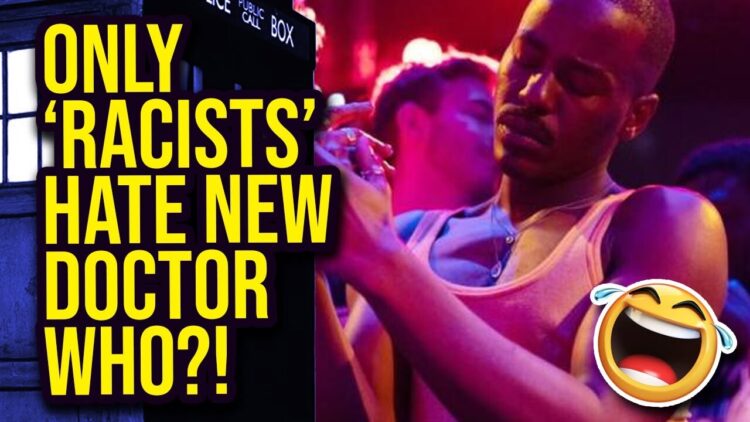
Russell T Davis vs. Reaction YouTubers: The Death of a Franchise
Season 2 of Doctor Who started with people finding out that Disney was not happy with the reaction to the show, especially with the numbers on the decline overseas. Doctor Who was not the big audience-drawing show that they were led to believe, which put a lot of things into chaos.
First, Millie Gibson, who played the new companion Ruby Sunday, around whom the whole mystery of the first season was built around didn’t want to return to the role for another season (and no, we don’t have her mystery solved at all) for undisclosed reasons. The second was that Gatwa had already made the decision to leave the show after the end of season 2, making him the second Doctor to leave before the end of a third season. What didn’t help things was that due to the reaction of season 1, Disney reduced the budget for season 2 almost as a punishment for the show not holding up its side of the deal. Of course, Davis would constantly deny the news in interviews, saying that everything was up in the air till the announcement of the final two episodes, where he wouldn’t outright confirm that the show had been placed in hiatus, or limbo, but did mention at one point that the show might just be renewed after the end of season 2.
“It’s an industry decision, it’s like any business – these things take time, I think the decision will come after the transmission of season two. That’s what we’re expecting, that’s what we’ve always been heading towards.”
The big flaw with season 2 came from the reaction to season 1, where a lot of online Youtube reactors, like Desparu, would rip into every episode of the series, pointing out plotholes, issues with the lore, the acting, and tropes that had developed over the course of the first season (Take a drink for every time Gatwa cries, you’ll be drunk before you know it). This obviously got on the nerves of Davis as the whole second season revolved around social media, YouTubers, and detractors from the show. We had episodes like “The Robot Revolution”, which featured a world that ultimately got run by an “incel” (A guy who wanted a girl but got denied so he tries to force himself onto her) because in society, men are evil if they get rejected; and the other episode “Lucky Day”, which introduced the character Conrad Clark, a “right wing” style Youtuber who is out to “expose the truth about U.N.I.T.” but is all about pushing his “right wing” politics onto the public.
Safe to say that these episodes were not a hit with the fans, since we got enough of that in season 1. Ratings continued to drop with some overnights doing 1.5 million people, with the same show only gaining 1.3 million viewers within the 7-day ratings range… Doctor Who at it’s peak was doing 13.13 million viewers, now it’s dropped to close to 10% of those numbers.
Anyone who would see these numbers would do anything to regain the trust of the viewers and do whatever was needed to be done to get them to tune back in, but to Davis, this was just fine. Davis didn’t care about the ratings drop and that viewers were tuning out in the millions, he was writing the show that he wanted to write: A show full of his views and ideals that would be shown to the world… aka “the message is more important than telling a good story”. What didn’t help matters was the Gatwa, a Davis favorite, who doubled down on his previous bad takes and audience blaming, complete with using his skin color as a shield, in interviews for a while before completely ignoring anything to do with the show.
The finale two-parter “Wish World” and “The Reality War” reintroduced the character of The Rani, a Time Lady who survived the destruction of Gallifrey, only to have her bi-generate into two versions of herself (the old version cowtows to the new version by the way), and tries to bring back Omega: The first Time Lord… Which contridicts the whole “Timeless Child” bullshit that Chibnall brought into the show, something that Davis wanted to keep in the series going forward as it gives him more options to tell different stories. The finale ends with Gatwa’s Doctor regenerating into… Rose Tyler, the companion from the David Tennant era… Except not all is as it seems.
Behind the scenes, the finale was a mess… There were a LOT of leaks happening from the set only weeks before the finale episodes were about to be released, mentioning characters, effects, moments, and cameos in the two episodes, long before they hit the airwaves. The big one was that there was a regeneration filmed, in fact, there were multiple versions filmed to make sure that the show had as many outcomes ready to go as needed since Disney still would not confirm anything about another Doctor Who season and the BBC doesn’t have the money to produce the show anymore… So we got a shot of Rose returning but there is NOTHING out there confirming her as the new Doctor. Even the credits, which would traditionally show “And introducing <Name> as The Doctor” when a new Doctor was shown, did not happen. The only thing we do know is that this ending was the one Davis showed to try and get fans to get online and say how much they want to see Rose’s return to the show as the new Doctor… It’s bait, pure and simple. If people don’t take the bait and the show gets revived down the track, people will be asking to resolve this storyline, which will give the next showrunner a huge headache to fix… Aka, it’s Davis’ final “fuck you” to the fans.
Doctor Who, 2023 Era, Season 2 ended with an (approximate) average of 3.18 million viewers, with the high being episode 6 at 3.75 million, and the low being episode 5 at 2.7 million viewers.
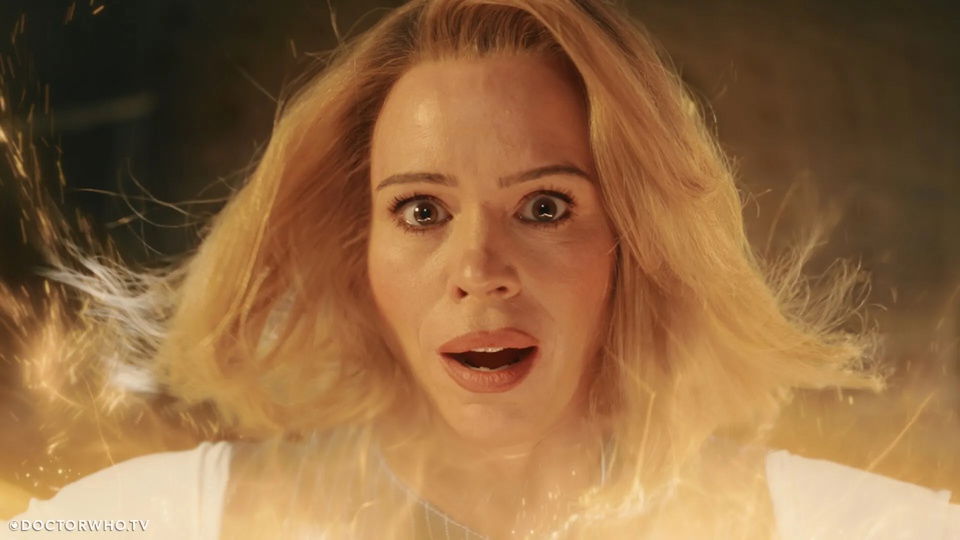
“Go Touch Grass”… and We Did.
Doctor Who is now dead… Or at least waiting for the new regeneration, or bi-generation, or whatever is needed to get the show back on the air. At the time of writing, there is nothing announced for the next season, if there is a new Doctor, a Christmas special, or anything that would give fans hope of seeing our favorite Sci-Fi time-traveling madman (or madwoman) in a blue box back on our TV screens.
This whole saga could be summed up in my wife’s reaction to the last five seasons: “I feel sad that Doctor Who has gone from an enjoyable weekly watch to a chore. I feel even worse for my mother, who has watched this since she was a child and now stopped caring about the show completely”. If that doesn’t make you understand how far this show has fallen, nothing will.
Gatwa said, as I quoted above, that fans should go “touch grass” if they didn’t like the new direction of Doctor Who… Well, we did go and touch grass, and the show failed because of it. Maybe next time, don’t go out in an interview and tell the audience who find issue with a show you and your friend are actively ruining to leave, because we will. The audience of Doctor Who was a rallying cry against the social commentary that modern media has become, where the message about Diversity and Inclusion is the focus instead of making a good, well written show where characters feel natural to the world around them, not forcing people to accept specific ideals and personal opinions as the all-encompasing truth.
Yes, Doctor Who can be anything or anyone, any gender or sexual orientation; and we’ve seen these types of characters work in this show because they were written as a part of the character’s identity, and not the sole part of their identity. The biggest example that I will always refer back to is Captain Jack Harkness, played by John Barrowman, as the best way to write someone who is non-binary and gay… Shame he’s been blackballed due to allegations that popped up when he started to openly criticize the claim of Gatwa being the “first LGBTQI+ actor in Doctor Who”.
Even female Time Lords have been done well… Missy, anyone? Hell, even The Rani in the second season of Gatwa’s era was a good character. So that idea goes right out the window when you really think about it. Even Whittaker’s time as The Doctor wasn’t all too bad looking back on it, she was just stuck with a shitty writer.
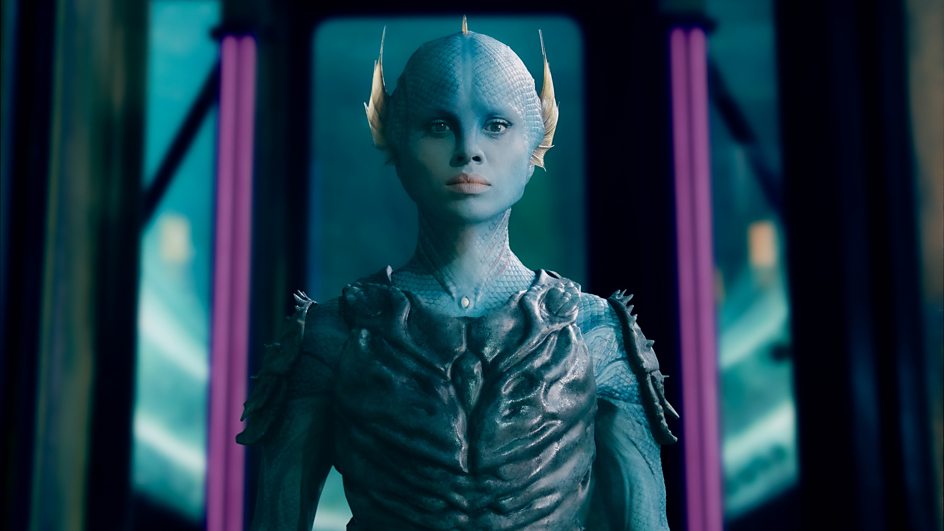
Moving On:
While we don’t know what the future of Doctor Who holds, we do know what the next Doctor Who-ish project is going to be. Following the end of “The Reality War”, BBC released the trailer to The War Between the Land and Sea, a side story which will feature U.N.I.T. dealing with Atlantis or something… To be honest, after going through all the bullshit of the ending to Doctor Who, I couldn’t care less about this Russell T Davis written side story which will ultimately mean nothing to the overall Doctor Who universe as it does not feature The Doctor at all.
I’m sure I’m not the only one who isn’t going to bother watching this show; the audience has already left the active fandom and will sit on the sidelines waiting for the real Doctor to return. We’ve done it before, and we’re going to do it again.
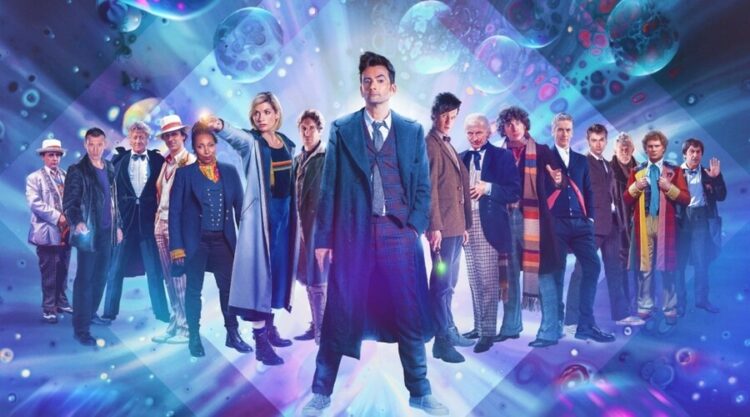
Doctor Who is over… For now…
At the end of it all, the question remains: “How can Doctor Who return to its height of popularity?”… The answer is that it can’t. Not without a huge change in the way media is produced and the way that the writers, showrunners, and actors defend themselves against criticism.
If anything, the only way to “fix” Doctor Who is to let the show die once again, much like it did in the 1990s.
When Doctor Who ended with the 1996 movie, the series had time to disappear from the minds of fans worldwide, allowing the issues with the show to end along with it. With this in mind, Doctor Who needs to do the same thing again, with no new shows being produced for maybe 5-10 years, allowing the show and its problems to disappear from the minds of the audience, allowing the mistakes to be forgotten.
Should the show be revived after that, you need to find a writer who understands a few things:
- Doctor Who is a show about time and space, it’s a sci-fi fantasy
- Respect the lore that has been established
- Have a love and reverence for the show and its characters
- Activism has no place on the show unless done without force or “punching down.”
- The companion is the audience, not The Doctor
- Writing is not about making your fan fiction into a TV show
- Write for the audience that you have, not a mythical audience that doesn’t exist
- Don’t be afraid to use old characters in new ways
- When in doubt, the villain is The Master, Daleks, or Cybermen
- Do not talk down to, berate, or blame that audience when you don’t get the results you want
I can’t believe I’m going to say this, but bring back Steven Moffat and make him the showrunner. While there is a loud part of the fandom who will say his stories are horrible, when compared to the likes of Chris Chibnall and Russell T Davis, Moffat’s work is the stuff of legend. Moffat’s two episodes, “Boom” and “Joy to the World” are two of teh most positively received episodes of both seasons with many, including myself, stating that those were the two times where Doctor Who most resembled the popular eras of Doctor Who… and one of them was an episode where The Doctor didn’t even move!
Doctor Who is popular for many reasons, and ignoring those reasons will be enough to turn the audience against you, leaving you with a show that people would rather see die off than continue. The Doctor might have unlimited regenerations, but a TV will only survive as long as the audience allows it to.
As a fan of Doctor Who, someone who loves this series and would love to see it thrive once again, heed my words, listen to what I have to say, take it on board, and hope that someday we will enjoy the adventures of The Doctor once again, instead of watching the car crash that the show has become.


